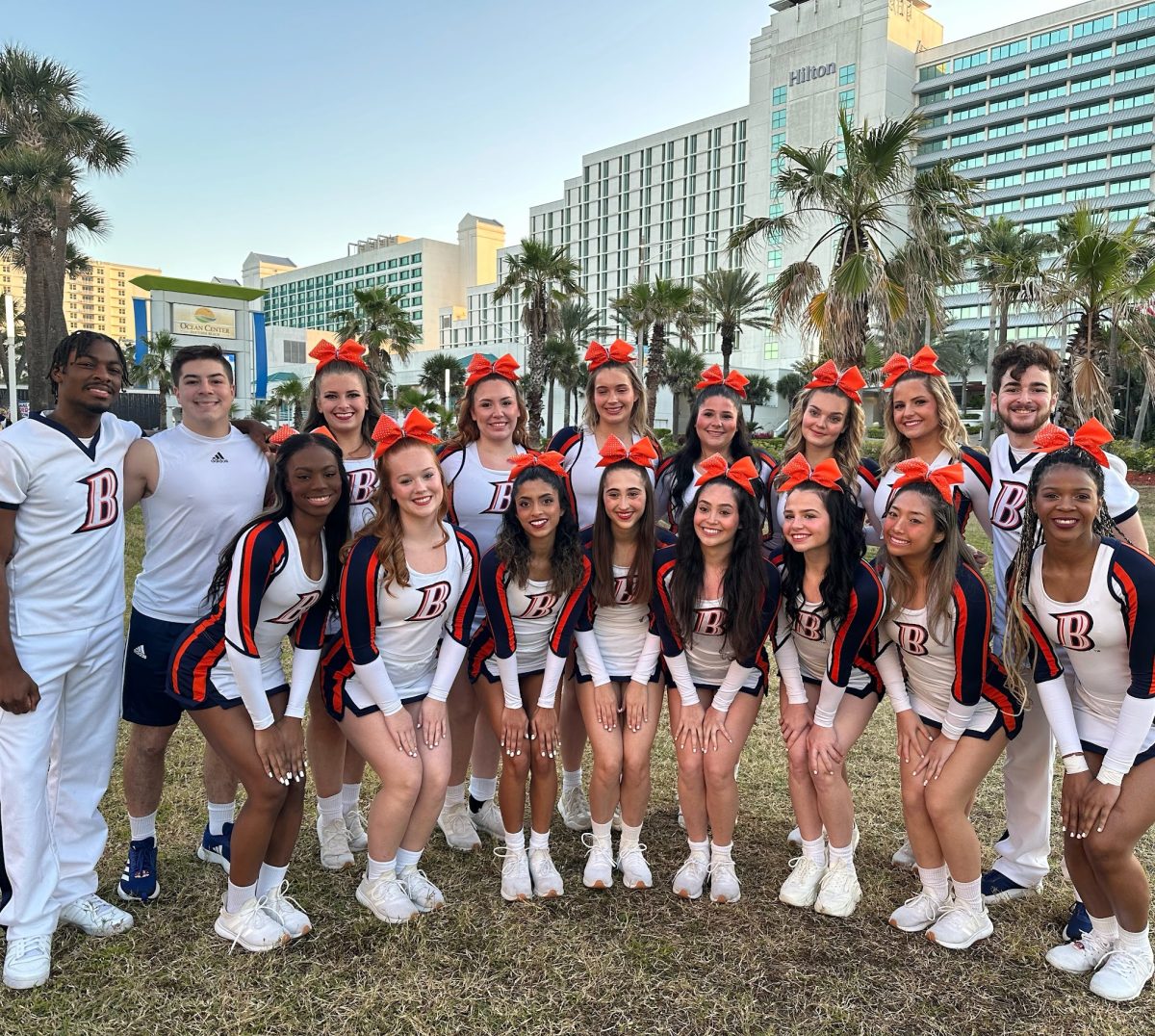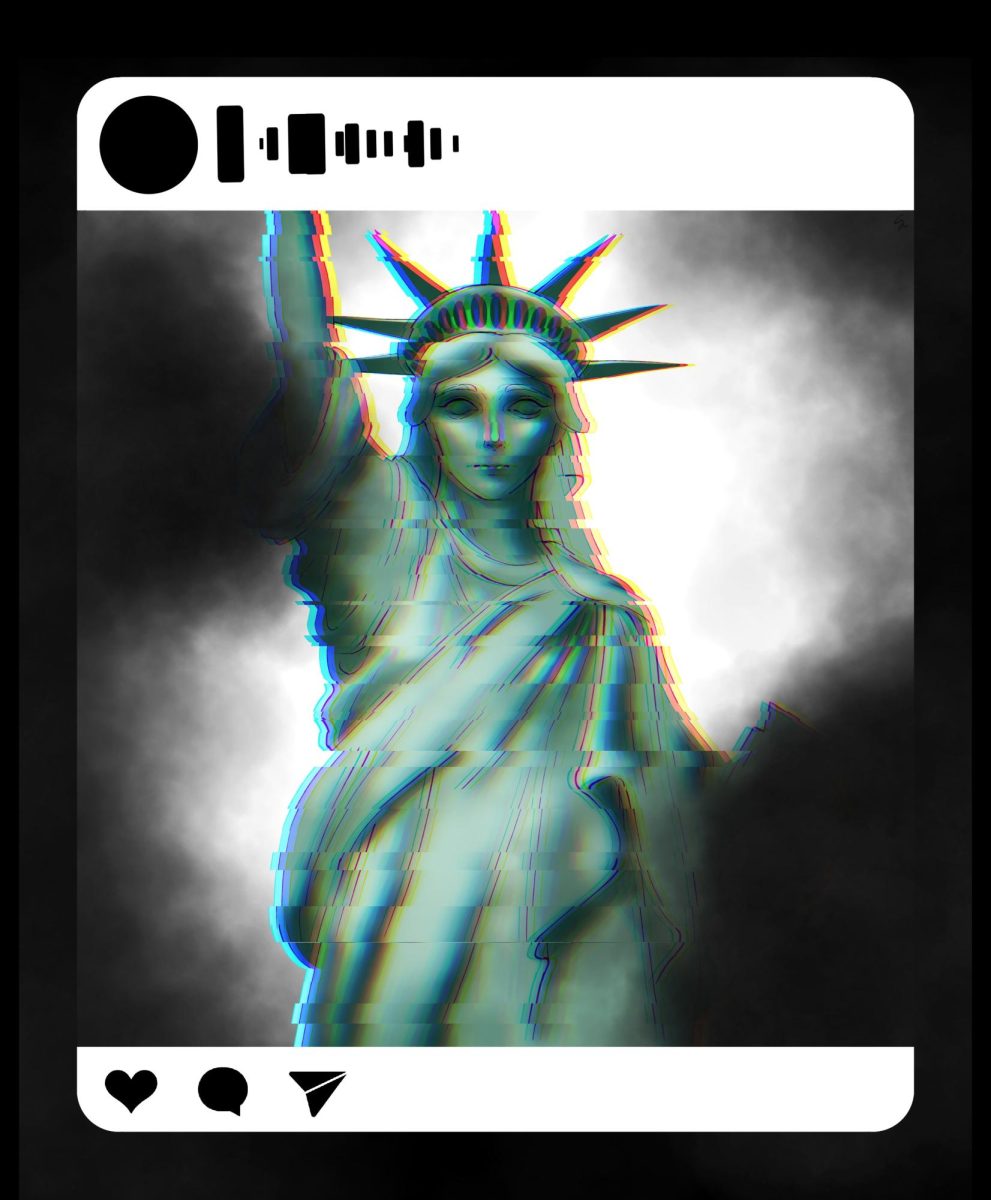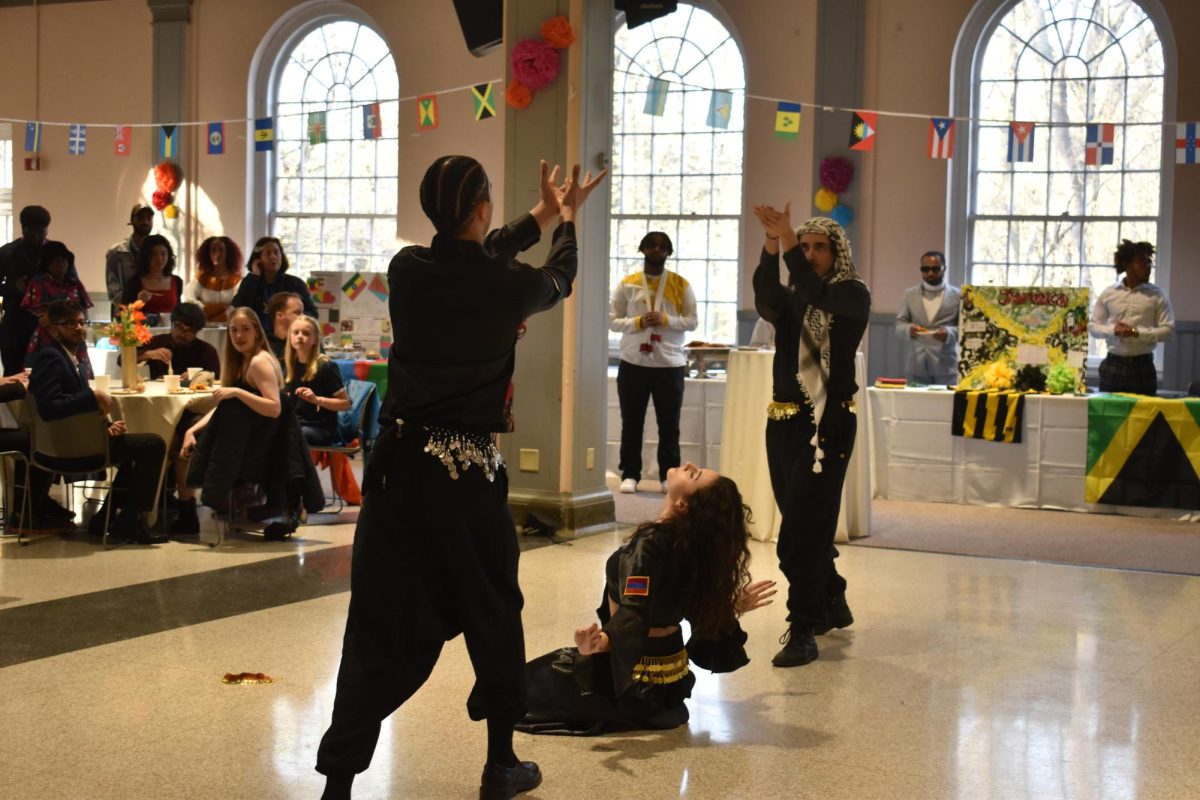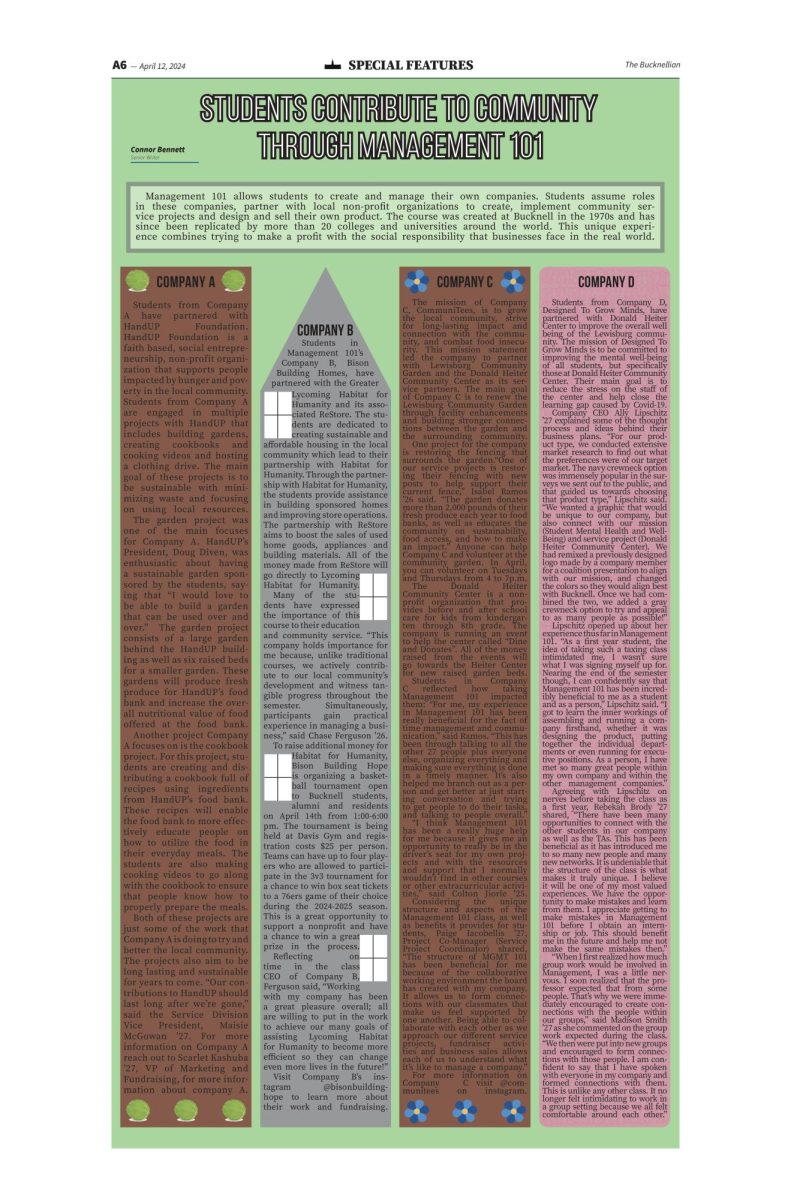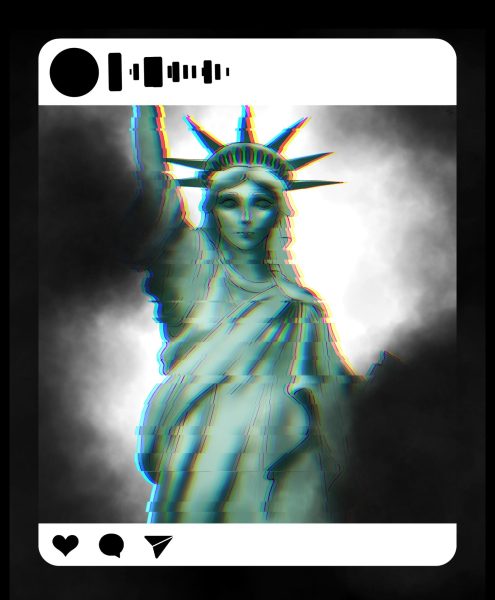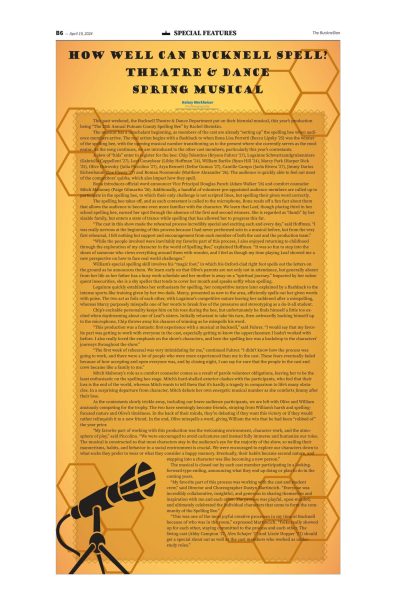Wendy finds her kiss at Bucknell theater’s production of Lost Girl
October 28, 2022
From October 21 – 24, Bucknell Theatre and Dance put on their 2022 Fall play, Lost Girl. The play acts as the sequel to the movie Peter Pan, as it follows what Wendy’s (Bethany Fitch ’23) life is like after returning from Neverland.
In the program that attendees received at the show, the cast biographies were made unique by including childhood memories from the cast, playing into the magical elements of the show. Fitch said that what she loves most about Lost Girl “is how much magic it captures while still being so grounded in the reality of a 19-year-old girl’s life.”
The play begins with Wendy’s return from Neverland, where she is left in a depressed and reclusive state, wondering when Peter Pan (Reid Fournier ’24) will return, as he said he would. After her and her brothers’ disappearances, Wendy is the talk of the town and is seen being questioned by a detective (Maddie Buckley ’24) about the strange occurrence. In other asides, the audience experiences the efforts towards Wendy’s recovery, as she talks with a doctor (Harper Dick ’25) and a therapist (Yasmine Adam ’24).
The play allows the audience to hear Wendy’s internal dialogue, as she grapples with the inability to let go of her fixation on Peter Pan. Her mother (Grace Woodhouse ’25), as well as the band of “Lost Boys” that returned from Neverland with her, are constantly encouraging her to let go of the past.
The main feature of the play’s set is the large window in Wendy’s room that Peter Pan had originally come through, which remains open in hopes of his return.
Wendy’s main reason for holding onto these memories is because Peter Pan “has something of hers” – a kiss. Other characters in the play struggle with understanding this, as they know a kiss is not a tangible thing. For Wendy, though, this kiss is nearly tangible as she struggles with being able to “give” this kiss, or any sort of romantic affection, to anyone else.
Throughout the course of the play, we learn that there is some information that other characters are withholding from Wendy. She discovers that three other girls had been whisked away to Neverland (Caroline Pritchard ’26, Vivian Kuang ’25, Joselyn Busato ’24). While each still reminisces about Neverland and Peter Pan’s promise to return, they all seem to have had an easier time letting go than Wendy.
Through these three girls, as well as the character of Nina (Libby Hoffman ’24), the audience learns that Peter Pan isn’t in Neverland anymore and has returned to the real world like the rest of the children. Nina interviews Wendy for an academic paper about the disappearances. Nina is the reason Peter Pan decided to leave Neverland, which Wendy struggles to come to terms with, as she had asked him to come with her as well.
One of the Lost Boys, Slightly (Kieran Calderwood ’24), is especially wishful that he can get Wendy to come out of her shell. Towards the end of the play, the two share a kiss, and Wendy begins to realize that she can give her love to someone else besides Peter Pan, and stop waiting for him.
As the play is coming to a close, Wendy’s final monologue suggests that she is ready to move on–until Peter Pan suddenly appears after all. She tells him how he had stolen her kiss, and insists that he “give her a new one.” The two kiss, and the audience is left to wonder if all of her self realization has gone to waste, but not for long. Pulling back from the kiss, Wendy realizes that it doesn’t hold the same spark that it once had, and she can now fully let go of her past.
In the end, Wendy finally closes her bedroom window, symbolizing her decision to leave Peter Pan and Neverland behind her.
Wendy’s personal journey is part of what made this play so meaningful to those involved in its production.
“I think we can all find a piece of ourselves in Wendy in times of growth when you just need a little push to recognize that you are so much more capable than you think you are,” said Fitch.
Nabeel Jan ’23, Assistant Director, felt similarly about the play’s focus on growth and change.
“Lost Girl was an incredible experience for a couple of reasons: the first being that the play centers around change—specifically the change that circles around you as you grow up,” Jan said. “As a senior, I feel as though it was a unique and wonderful opportunity to help sculpt a character’s path/narrative through change as I simultaneously undergo a similar process.”
As Jan expressed, Lost Girl was just as important for those off-stage as for those on stage. Eliza Greenberg ’24, Stage Manager, spoke on how all of the hard work is made worth it in the end.
“As the stage manager, you’re the first one in the theatre and the last to leave,” said Greenberg. “It’s countless hours of writing emails and attending rehearsals and meetings and so much paperwork, but it’s also watching people’s passion play out right in front of you… and being able to know that every morning meeting, every late night rehearsal, every single email was worth it.”


